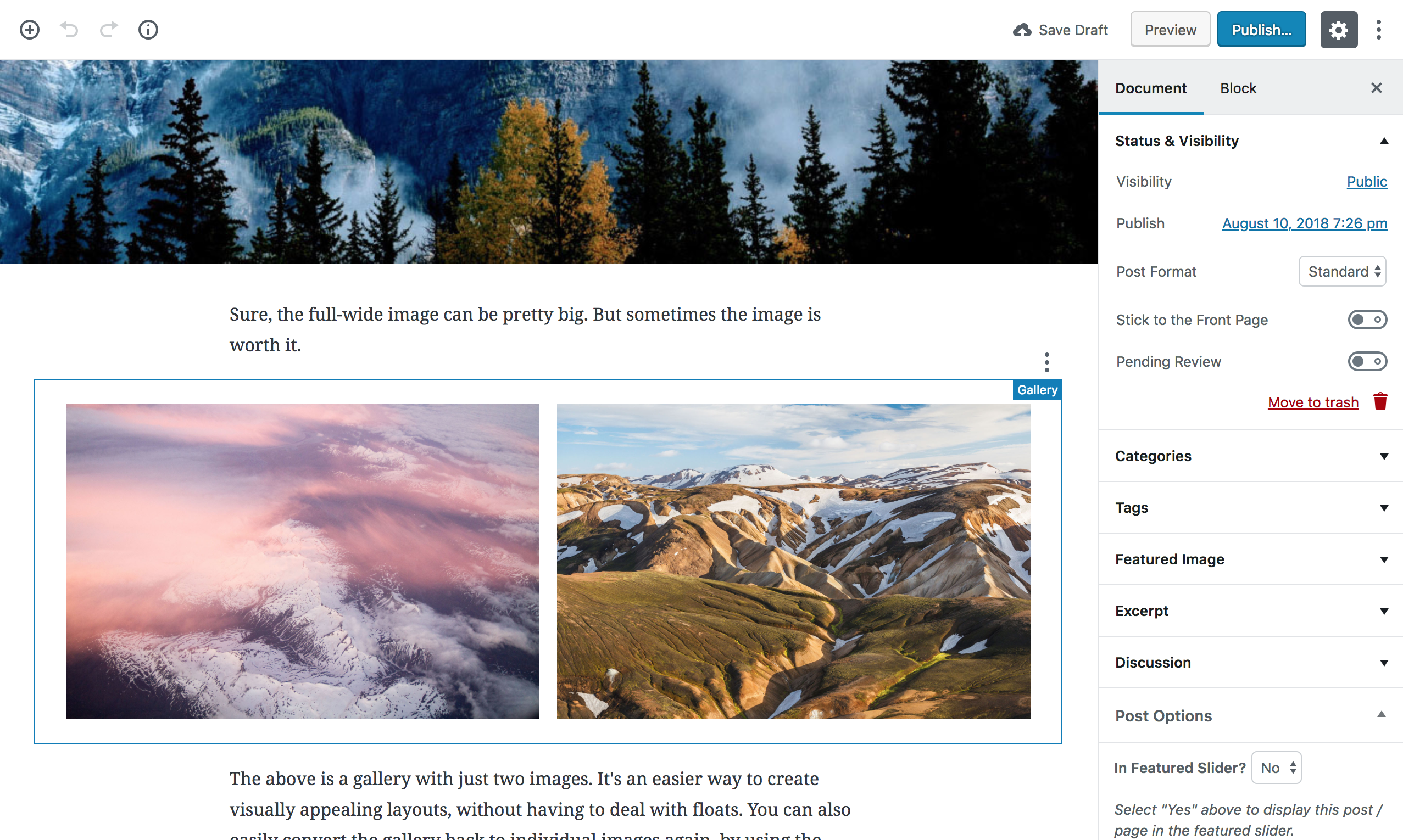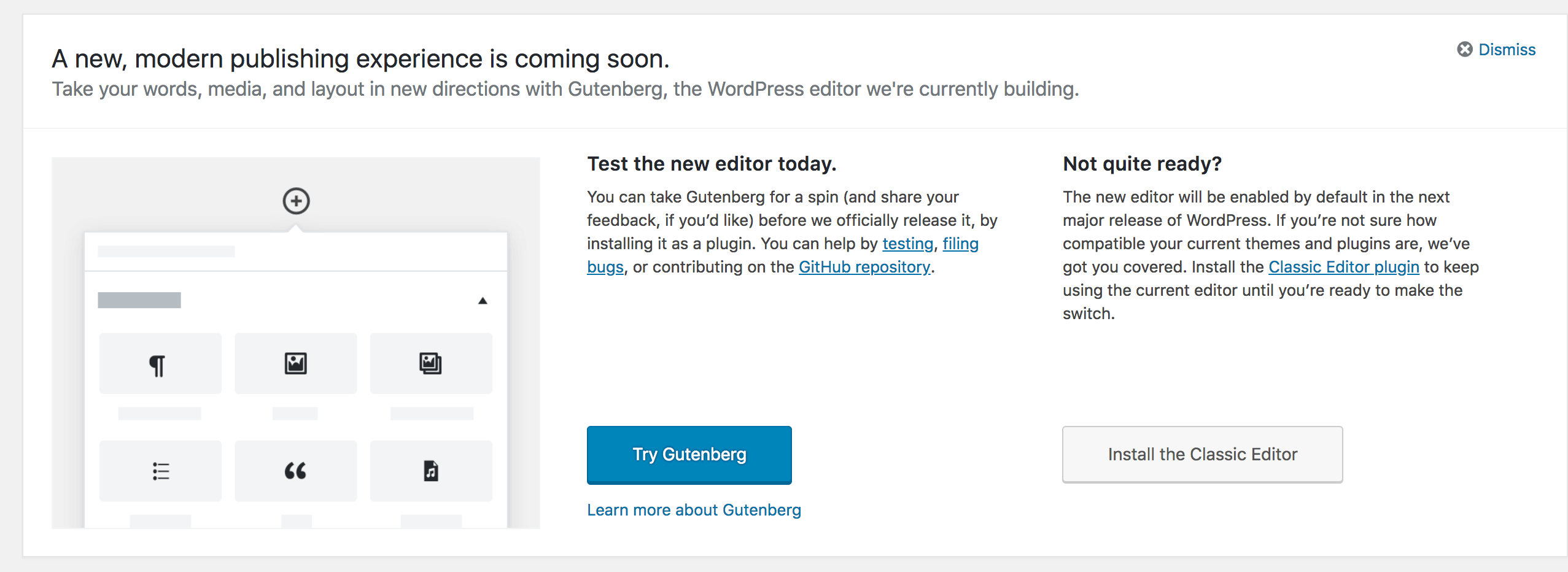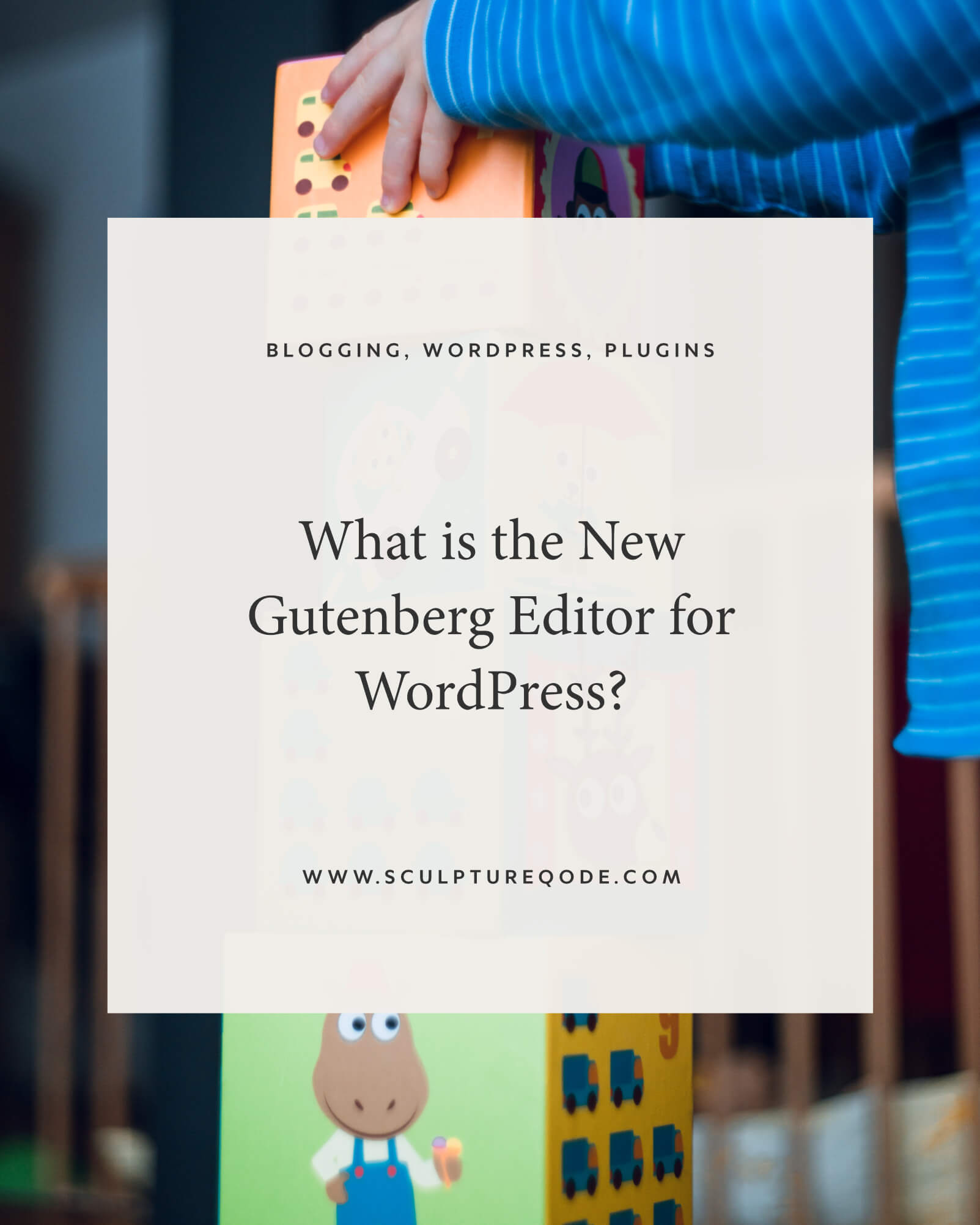WordPress has been the go-to CMS since its release. Because of WordPress’s popularity, millions of websites of all types and sizes rely on it for its stability and power. As with all things, however, WordPress is changing, and while change can lead to uncertainty and some negativity among users, we are excited about WordPress 5.0 and its introduction of the new Gutenberg editor. This post is not a review of Gutenberg, simply an overview of what Gutenberg is and what you can expect as a blogger using WordPress in the near future…
What is the Gutenberg editor for WordPress?
So, what is Gutenberg? Anyone that has ever logged in to the WordPress Dashboard has more than likely done so to add, edit or remove content via the current ’classic editor’. The classic editor, while familiar, has its limitations and comes packed with annoyingly frustrating quirks for bloggers and website owners. For quite some time it has been known something needs to change and finally, WordPress 5.0 brings an entirely new experience in the form of Gutenberg.
What does Gutenberg mean for your WordPress blog?
With the power of Gutenberg, updating content and creating a new post with unique layouts requires considerably less time than before. The new Gutenberg editor will be able to provide content-builder based functionality with the use of ‘blocks‘, without the need to source a third-party plugin first that will essentially do the same thing. There will also be no need for creating shortcodes littered throughout the content of your blog post, and certainly no need for lengthy and sometimes complicated instructions just to display simple elements like a button. Instead, you would just select the block you wish to appear in your post. For example, you can include buttons, full-width images, cover images, galleries, quotes, social network feeds, and more, and have them appear anywhere within your post or page in just a few clicks and drag and drops.

Although the new post editor will look different to the classic editor all we all know and love, rest assured that familiar elements such as Featured Image, Categories and Tags can still be found, down the right-hand side of the screen.
Gutenberg’s blocks allow endless possibilities for bloggers and content editors. It also provides theme developers, like us, with the power to create bespoke functionality that is a breeze to use and to save time and frustrations ultimately.
When will Gutenberg be released and ready to use on my WordPress blog?
As of writing this article, Gutenberg is still in development. However, it’s on track for release in the second half. If you want to get your hands on Gutenberg today, you can test-drive the new editor straight from your WordPress dashboard, or you can head over to its WordPress plugin page and install Gutenberg.

Please ensure you do not activate the Gutenberg Plugin on your live WordPress blog, there is a possibility that some of your existing plugins will not be Gutenberg ready and may cause errors or even break your blog.
Will Gutenberg Break my WordPress Blog?
Many WordPress bloggers and website owners are concerned that Gutenberg will break their website. Ultimately it is a possibility; we would recommend creating a copy of your live blog and activating the Gutenberg plugin there to thoroughly test how friendly Gutenberg plays with your existing plugins and functionality.
If you find that Gutenberg breaks your blog, it could be that the plugins you are using are not quite ready. In this case, we recommend contacting the creators of your plugins to see if there are any plans to resolve Gutenberg compatibility issues.
Do I have to use the Gutenberg Editor?
Currently, there is a plugin that provides the ability to revert back to the classic editor with a simple click. If you do not enjoy the Gutenberg experience this will become your new favourite plugin when WordPress 5.0 is released! The developers creating Gutenberg are also exploring possibilities of detecting whether to load the classic editor or Gutenberg based on your blog setup.
In Conclusion
While Gutenberg is a controversial topic in the world of WordPress, there are also lots of positive steps in the right direction, especially for bloggers. Gutenberg will give bloggers the potential to create more engaging and interesting post and page layouts without the need for lots of extra plugins. Although, there will probably come a learning curve with this new way of creating content, and some bloggers may feel that the new WordPress editor hinders the flow of their writing.
As we specialise in WordPress and our themes are built to the latest in WordPress standards, we will be embracing the Gutenberg editor and, moving forward, will build all new WordPress themes to be compatible with Gutenberg. We look forward to the new possibilities (and challenges!) this will involve and to see where the future of WordPress will lead!

